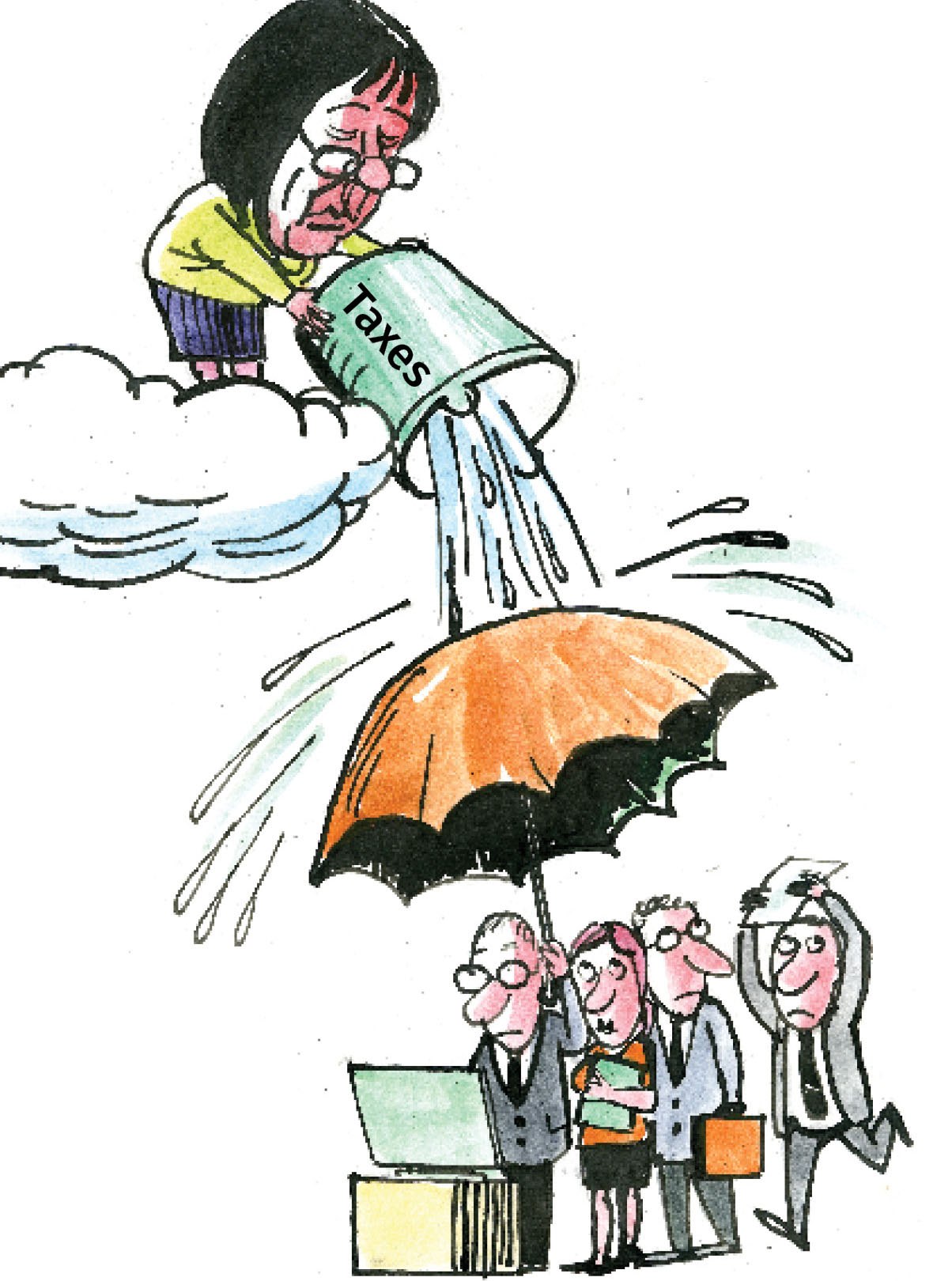Even with Russia's war smoldering in eastern Ukraine, Ukraine has managed to make gains in international business rankings.
According to the World Bank, Ukraine this year ranked 87th out of 189 economies in ease of doing business. The country climbed 9 places in the ranking compared to the previous year.
The success of Ukraine’s growing information technology industry contributed to the improvement. IT firms enjoy a much lower tax burden than in most advanced economies. Most who get hired in this field usually find employment as independent contractors or entrepreneurs. This allows them to take advantage of low tax rates and uncomplicated reporting regulations. That benefits both companies and employees.
In this arrangement, called the simplified tax system, employers don’t have to pay taxes on salaries, while employees pay a fixed rate of only 4 percent of their earnings, unless they choose to pay value-added tax as well, in which case the rate is 2 percent.
However, the most recent tax reform bill on offer will end the convenient tax regime.
IMF requirements
According to Finance Minister Natalie Jaresko’s tax bill, which has been designed to meet requirements set by the International Monetary Fund, independent contractors are to be placed in a different tax bracket.
Contractors who currently make less than Hr 20 million a year qualify for 4 percent monthly rate. Jaresko’s bill implies that if entrepreneurs earn more than Hr 2 million annually, they will have to pay a general tax that adds up to almost 40 percent of their income – 20 percent income tax and 20 percent value-added tax.
“The incomes of companies and entrepreneurs will be taxed equally,” Jaresko said. “This will help create one of the lowest tax burdens on salaries among European countries.”
To calm the fears of IT businesses, the Finance Ministry met with industry representatives on Dec. 3, most of whom export their goods and services.
“We understand that the IT sphere is one of the industries related to Ukraine’s ‘new economy,’ which has been showing considerable growth during the last few years and is now a leader in terms of export volumes,” Jaresko said at a news conference on Dec. 3. “That’s why we want to see the competitive recovery of the Ukrainian IT industry.”

Finance Minister Natalie Jaresko’s tax bill proposes to close the gap over time between independent entrepreneurs, who pay only 4 percent, and official employees, whose employers pay more than 40 percent.
Rapid tax hikes
Jaresko’s plan could have the opposite effect, according to Konstantin Vasyuk, IT committee coordinator at the European Business Association.
“Jaresko promised the rates would stay at the same level, and independent contractors remain – at least for the next two years,” Vasyuk told the Kyiv Post. “But then the rate will grow very rapidly. It is to be 13 percent for contractors by 2018, and 20 percent by 2019.”
“That’s what we’re all fighting against. The taxes will have to be increased more gradually to save businesspeople in Ukraine,” he said.
According to him, only if there is a smooth increase in tax rates will it be possible to plan a business to keep it developing, which in turn will support the tech industry’s overall growth. “If abrupt change happens, it will force part of the industry to move its businesses somewhere else,” Vasyuk said. There are signs that some companies are already contemplating a move. According to the director of NHL Audit Yevgeniya Vakulenko, IT companies started calling her and her colleagues for help in moving working capital abroad after learning of the new draft code.
“Clients from the IT sector came to me asking how to take their capital out of Ukraine,” Vakulenko told the Kyiv Post. “This speaks volumes. This tells us that the Finance Ministry’s draft will not favor the development of the IT business in Ukraine.”
“There is much to gain from paying taxes – but only if they’re understandable and don’t kill off a business,” she said
Vote postponed
A compromise bill was presented to the Verkhovna Rada on Dec. 17, but did not receive enough support. The chances for passage by year’s end are uncertain.
The Kyiv Post’s IT coverage is sponsored by Looksery, Ciklum, Steltec Capital and SoftServe. The content is independent of the donors.
